“I have a theory…”
Moments after stopping to wish a good morning to a fellow team member in the attractive Williams motorhome, James Vowles offers RaceFans his grand hypothesis on the formidable talent pool found within the F1 paddock.
“Formula 1 has some of the best of the best. Engineers, marketing – it doesn’t matter. Top of the class in whatever area they are.“And then, you have all the failed racing drivers…”
It would otherwise be one of the more stunning statements made by a team principal in recent years – except Vowles isn’t referring to any of the 20 elite athletes lucky enough to be granted a place on F1 grid. He’s actually talking about himself.
In a RaceFans first, the interview subject sat opposite the table just so happens to be a driver from the Asian Le Mans Series. Technically speaking.
Over back-to-back weekends in February last year, Vowles got behind the wheel of a McLaren 720S GT3 car operated by the respected Garage 59 team to compete in both rounds in the sportscar series at the Dubai Autodrome and Yas Marina circuit. In doing so, he fulfilled a promise he had made himself way back in 2001 when he had first entered the world of Formula 1 in an engineering capacity at Mercedes’ Brackley factory – when it was then run as BAR.
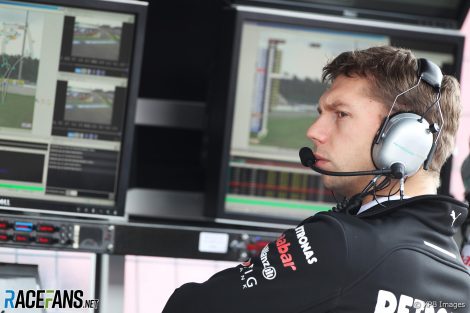
“But I knew I always wanted to at least be involved myself with these elite athletes. And that’s why F1 came about for me, that was my drive and motivation to be there. But when I’d had sufficient amount of time in the sport – and finance – I always wanted to make sure that I put myself back in a position where I could race competitively.”
Four races in eight days saw the then-Mercedes motorsport strategy director secure a best finish of 13th in class and two points alongside co-drivers Nicolai Kjaergaard and Manuel Maldonado – cousin of Williams’ last grand prix winner, Pastor.
“It was trial by fire!” he admits. “I’d done GT3 racing, I’d never done multi-class – LMP2, LMP3 and GT3. Never done a driver change. And then I’d never done night racing before. Unfortunately the car we had was brand new to the team. The lights definitely were not pointing the way they should be. So that was a fun endurance race…”
Advert | Become a RaceFans supporter and
But Vowles is getting used to things not operating optimally in motorsport. As he sits with RaceFans weeks before the team secured its excellent result of seventh place in the Canadian Grand Prix, Williams was languishing in tenth and last in the constructors’ championship on just a single point.
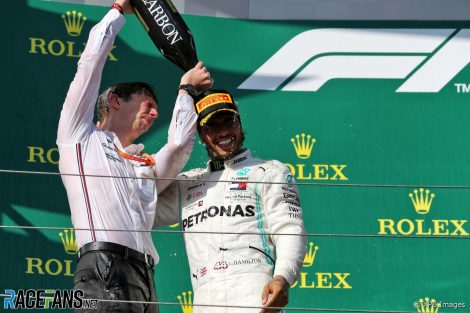
Only the third permanent team principal in the history of Williams Grand Prix Engineering – if you don’t count deputy team principal Claire Williams’ time acting as the public face of the team her father founded – Vowles has arrived at Grove not just to lead Williams, but to transform it. The hundreds of staff at the team’s factory have been working in a state of suspended animation in recent years as new owners Dorilton looked to forge a new path for F1’s most under-achieving team of recent times. They have tasked 44-year-old Vowles to do just that.
But fewer than five months into taking charge, how have his staff responded to their new boss?
“First and foremost, everyone’s been very welcoming from day one,” he replies, warmly.
“The fear that you have in these sorts of environments is always whether or not the team will open their arms up to you. Whether or not they would be fearful of the change or, worse still, reject you as the change. And I would say it’s very much in the camp of the team is ready for evolution, ready for transformation. It knows that we can’t carry on as we are.”
He’s conscious that he’s taking over a team who have already been through so much change, so recently. But rather than meet resistance, Vowles says he’s found talented personnel willing to embrace new ideas, new methods and new energy.
Advert | Become a RaceFans supporter and
“Williams has already had multiple directional changes, but everything that we have gone through so far in terms of what we want to achieve – not this year, but over the next years, which means complete ground-up, dig everything up, break it, structural changes – it’s been open-minded to,” he explains.
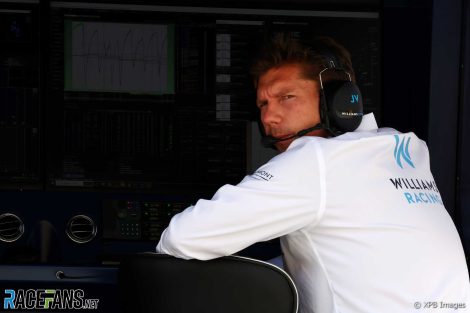
Given his technical background, it wasn’t surprising when Vowles immediately focused on Williams’ technical team and the gaping hole left by the release of multiple key figures, including their technical director Francois-Xavier Demaison and others. While Demaison’s role hasn’t been permanantly filled – yet – the team does have a new chief operating officer in the form of Frederic Brousseau, joining from the aerospace industry, no less.
“You still need the technical structure right, but I would say I’m very, very clear in my mind what that looks like now, and there’ll be action taken very shortly about that,” Vowles says.
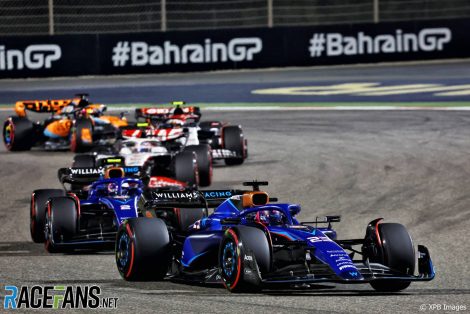
“It’s not just technical that needs to change. It’s not just design, it’s not just wind tunnel, it’s not just aerodynamics – it is everything. Some of the production elements are 20 years out of date in terms of methods and philosophies, and ‘a little bit all over’ is probably the right way of saying it. The one that drives everything is, ultimately, performance and that’s why the focus has to go into that one. But every time you push something, you’ll find another limitation, another logjam, and that’s what you have to go and clear up. And at the moment you don’t find that till you stress the organisation, which is what we’re doing in various ways at the moment.”
It’s not an enviable challenge. Not for any potential team principal, let alone someone taking the most important seat on the pit wall for the first time in his career. Through the first eight rounds under his direction, Williams have enjoyed some moments of true triumph – but bitter frustration too. But so far, Vowles can neither claim credit for the successes, nor take blame for the failures. Instead, he is still a team principal learning on the job, continuing to lay the ground work for what he hopes can be sustained future success.
Advert | Become a RaceFans supporter and
“I think even now, we’re finding – and I will continue to for the next six months – where the real problems are,” Vowles explains. “And they’re not where you expect either, particularly.
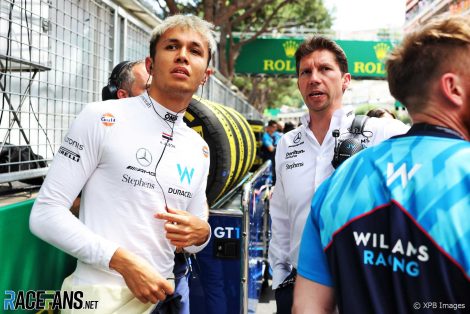
“Remember, it’s an organisation that is incredible in what it achieved. It has a car here, 17,000 components, that it put together without any digitised system at all. I didn’t even believe that was possible in modern day Formula 1. It gives you an idea of just how hard working and how dedicated some of the individuals are within this organisation. But you don’t become successful by doing that. Now, if you imagine the cultural change required to take individuals, ‘I’ve done it that way for 20 years’ and show them a completely different pathway – that doesn’t happen overnight. And the systems don’t come in overnight.”
What makes Vowles so qualified to help turn Williams around is how he was a core element of the machine that delivered Mercedes win after win and title after title for all those years. But Formula 1 isn’t football. It isn’t the NFL. It isn’t basketball. A leader cannot come in and turn around fortunes through sheer personnel management or raw charisma alone. Designing, running and developing an F1 car is something that requires resources, facilities and systems as well as talent and Vowles knows it will take time for neo-Williams to arise in its full glory.
“I’ve been very open and honest on ‘this is the timeline it will take’,” he says. “Just simple things that I can’t fix, but will take this long.
“If you want to change just the simulator, you’re 20 months away from a new simulator appearing in the building. If you want to change your composites facility, you’re 24 months away. If you want to change your buildings to lay it out properly, you’ll be about 36 months. This is pushing buttons today to get it organised – that’s how long it takes to put structures in place and systems.
Advert | Become a RaceFans supporter and
“If you want to change culture it’s typically, in my experience, three years. And from the outset what I’ve said to everyone is this might even be beyond when I’m here in the sport. I hope not, but what I’m putting in place is structures that will outlast me and will last a long, long time to bring this team back to where it belongs to be.”
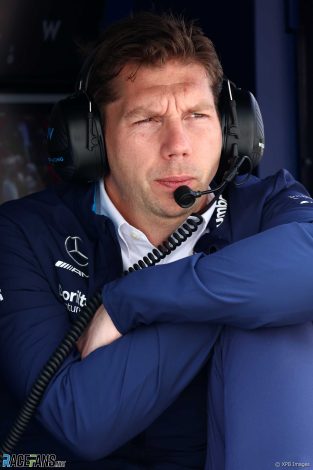
“I personally think that the connection I have with both of these drivers and that I had at my previous place as well, it’s a lot more cemented by the fact that I understand what they’re going through, to a certain extent,” he says. “Nowhere near the same level, not comparing the levels that we are, but I do understand what they’re going through.”
But while racing drivers are hard-wired to want to get everything done as quickly and efficiently as possible, that’s just not a luxury Williams, or Vowles have in their pursuit of climbing up the grid. So for now, Vowles is approaching mission to transform Williams not like a sprint, but an endurance race.
“That can’t be done in one year,” he states as the chequered flag falls on RaceFans’ time with him. “In fact, worse still, if you rush it in one year, we’ll have to undo it in two.
“That’s why I don’t feel any stress or otherwise, because I’m very confident and happy in my head that what we’re doing will be the right solutions for this organisation long-term.”
Become a RaceFans Supporter
RaceFans is run thanks in part to the generous support of its readers. By contributing £1 per month or £12 per year (or the same in whichever currency you use) you can help cover the costs of creating, hosting and developing RaceFans today and in the future.
Become a RaceFans Supporter today and browse the site ad-free. Sign up or find out more via the links below:
2023 F1 season
- FIA president cleared of alleged interference in two 2023 races
- First week viewing figures for new Drive to Survive season fall again
- Max who? Drive to Survive season six prefers its favourite faces
- RaceFans’ complete 2023 season review
- The F1 drivers who pulled off the 10 biggest charges through the field in 2023




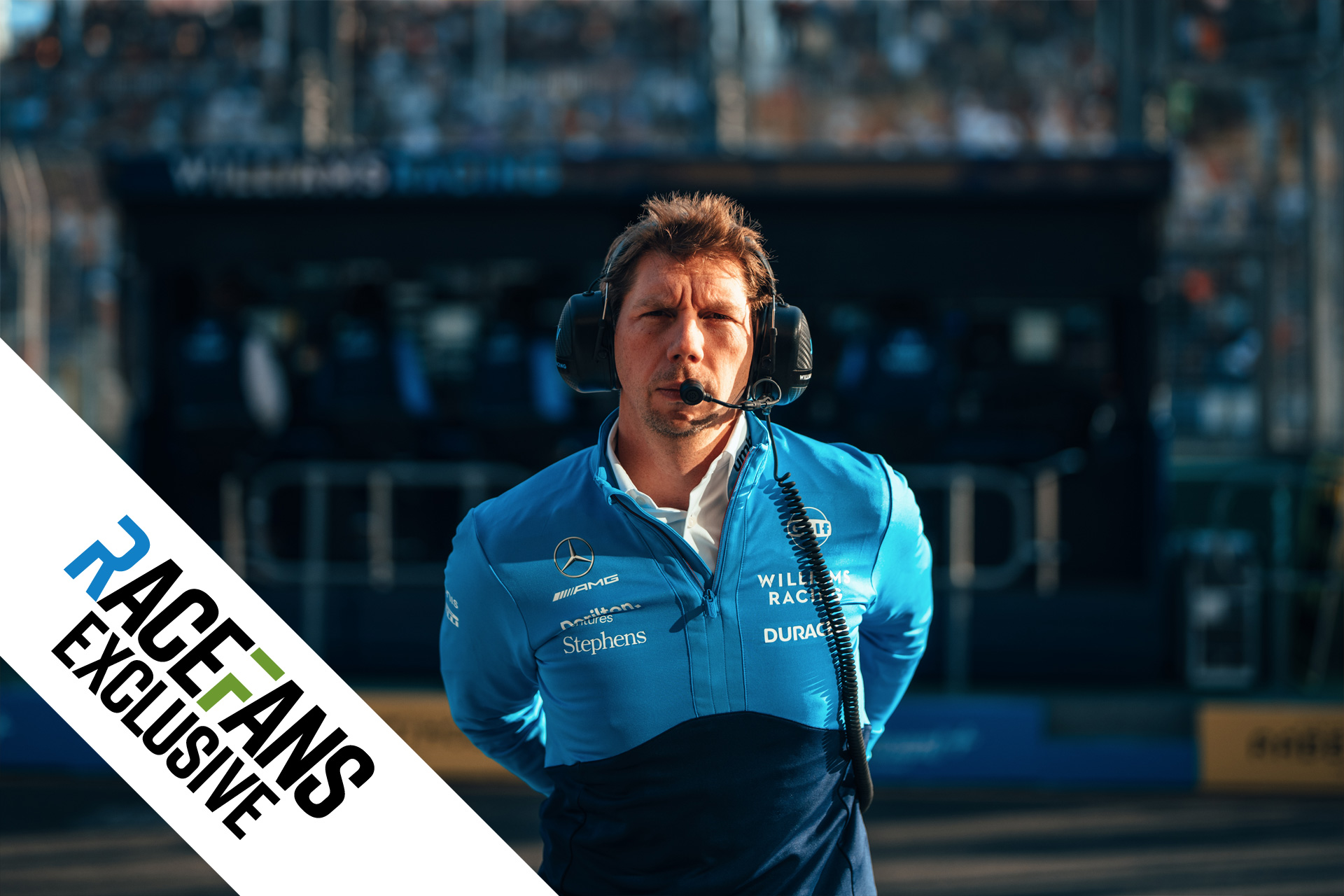
T
23rd June 2023, 14:15
I have newfound respect for this team now… and I now also blame the Williams family even harder now for what they’ve done with due to their obstinateness.
Good luck Vowles, I truly hope you succeed in your endeavors with Williams.
Bullfrog (@bullfrog)
23rd June 2023, 16:24
is a slight worry – don’t become Alpine (or Chelsea or pick an Italian football club) with a new boss every few months. Someone like Horner – but in a good way, in it for the long run – is what they want.
Tristan (@skipgamer)
24th June 2023, 6:26
Oh no, I had no idea they were so far behind, that’s really enlightening. No wonder Claire was so impressed by George’s power point presentation…
And I’m sorry but if people have been there for 20 years and doing things the same way for all that time and are reluctant to change, then they need to go. The results speak for themselves. No wonder Capito cut and run so quickly.
Only Facts!
24th June 2023, 13:36
The trick here is to shake things up without breaking it.
At the same time he wants to break that 20 years old mold, the team needs to continue racing, keeping drivers and sponsors motivated.
Machinery takes time to be delivered, newcomers take time to bring results, so all he can do for 2024 season is work with what he has. And (please) sign another driver to be alongside Albon. DeVries may be released soon, so…
Qeki (@qeki)
24th June 2023, 16:18
So it has been a downhill since BMW left. Makes you wonder how they felt in 2014.
Stephen Crowsen (@drycrust)
24th June 2023, 20:29
James appears to me to be on the right track to getting Williams back into the midfield, and eventually to be competing for podium places.
One of the rules for fixing things is “Big failures are accompanied by small failures”, meaning you can spend time fixing lots of small failures, but if you fix the big failure then the small failures vanish. The difficulty is trying to identify the big failure and then working out how to fix it.